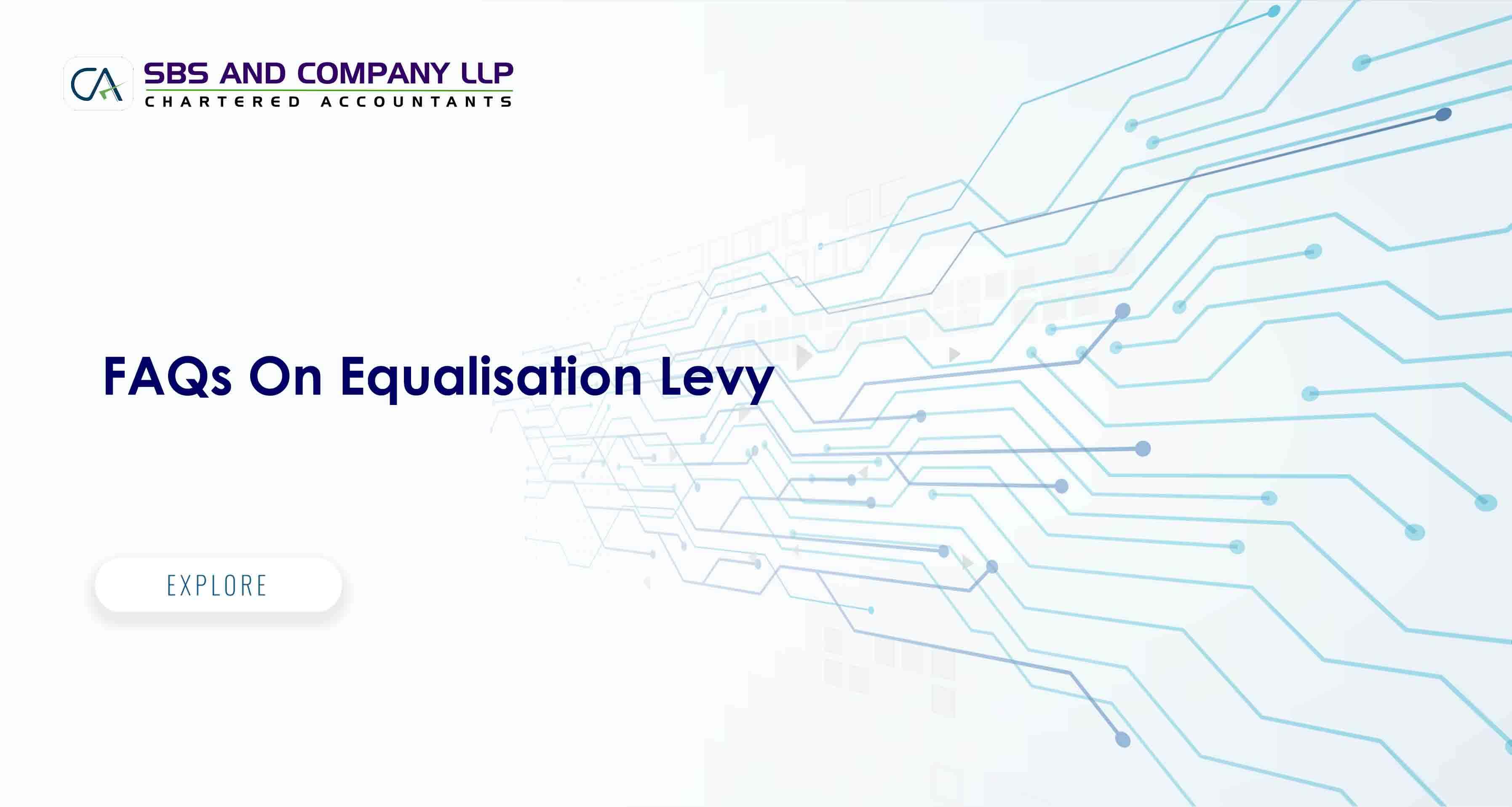- What is the objective of Equalization Levy?
Equalization levy is introduced to reduce the unfair advantage enjoyed by multinational digital enterprise over its Indian competitors and ensure fair market competition.
- Is Equalization Levy an income tax?
No. Equalization levy is not tax on income. It is levied on payments. For the same reason, a new chapter vide Chapter VIII of the Finance Bill, 2016 has been introduced to provide for equalization levy.
- From when would this Equalization levy come into effect?
Equalization levy shall be levied on consideration received or receivable for specified services provided on or after the commencement of Chapter VIII of Finance Bill, 2016.
- What is the rate of Equalization Levy?
The levy shall be @ 6% on the amount of consideration for any specified service received or receivable.
- Is Equalization levy applicable on import of goods?
Equalization levy will not be levied on goods to be imported. Orders placed and payments made on the internet will not attract equalization levy. The levy is only on specified services.
- All e-commerce transactions are covered under this levy?
Levy is on specified services only. It will not be levied on services that are not specified even if such services are procured by making payments from India over the internet. For example, if Indian resident books hotel rooms abroad and payment is made on the internet, such hospitality services are not specified service for the purpose of levy.
- Does Equalization Levy apply to specified services received from a Resident?
No. Equalization levy comes into play only when specified services are provided by a non-resident to a person resident in India carrying on business or profession or non-resident having a permanent establishment in India (referred to as assessee).
- What are the specified services for the purpose of levy?
Specified services means online advertisement, any provision for digital advertising space or any other facility or service for the purpose of online advertisement and includes any other service as may be notified by the Central Government.
- Is equalization levy imposed on all specified transactions irrespective of amount?
No. If aggregate amount of consideration for specified services received or receivable in a previous year by a non-resident from assesse exceeds Rs. One Lakh, equalization levy will be imposed.
- What is the due date for payment of Equalization Levy?
The Equalization Levy so deducted during any calendar month shall be paid by every assessee to the credit of Central Government by 7th day of next month.
- Whether grossing up is allowed?
Any assessee who fails to deduct the levy be liable to pay the levy to the credit of Central Government. (No grossing up of amount)
- Whether the payment chargeable to Equalization levy would include indirect taxes paid in India?
The Committee on Taxation of E-Commerce recommends that the equalization levy should be chargeable on the amount received by the beneficial owner excluding any indirect taxes or levies paid in India. Hence, there cannot be any equalization levy on indirect taxes.
- Whetheron the same amount equalization levy and income tax can be charged?
Income of a non-resident from services that are covered by equalization levy and on which equalization levy is paid will be fully exempt from income tax.
- What are the consequences if Equalization levy is not paid?
Any consideration on which equalization levy is deductible and if such levy has not been deducted or after deduction has not been paid on or before the due date specified U/S 139(1) such consideration will not be allowed as deduction.
- Will Equalization Levy paid after due date u/s 139(1) of Income Tax Act,1961 shall be allowed as deduction in another year?
Where in respect of any such consideration, the equalisation levy has been deducted in any subsequent year or has been deducted during the previous year but paid after the due date specified in sub-section (1) of section 139, such sum shall be allowed as a deduction in computing the income of the previous year in which such levy has been paid.
16. Can benefit under tax treaties be claimed with respect to Equalization levy?
No. Equalization levy is not charged on income. Hence it is not covered by Double Taxation Avoidance Agreements (DTAA). No tax credit under the tax treaties available to the beneficial owner in the country of its residence in respect of such levy.
17. Are provisions of Transfer Pricing and GAAR applicable to Equalization levy?
Since the levy is not under Income-tax Act, the provisions of transfer pricing and General Anti Avoidance Rules will not be applicable to it.
This article is contributed by Partners of SBS and Company LLP - Chartered Accountant Company. You can be reached at This email address is being protected from spambots. You need JavaScript enabled to view it.



